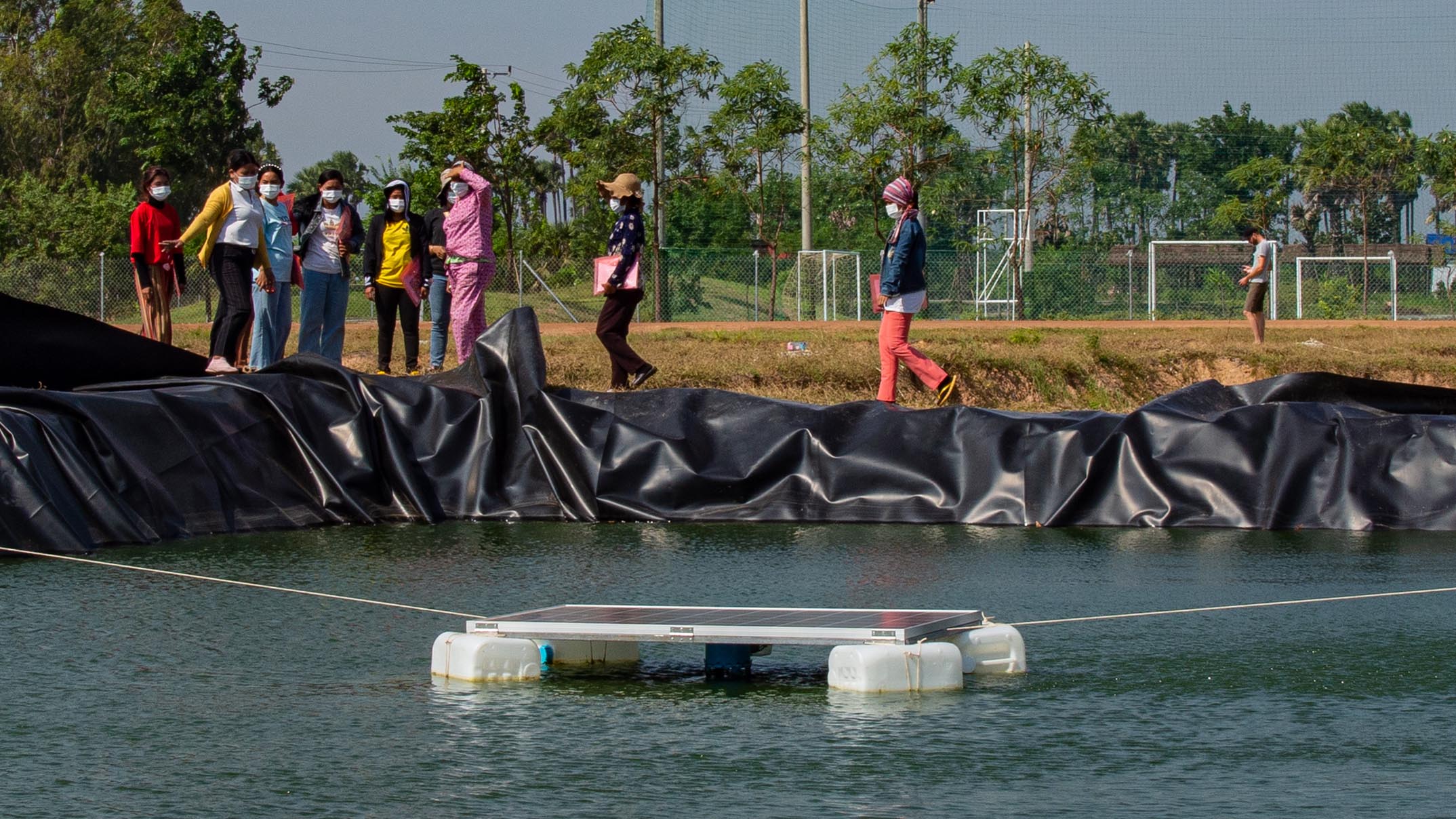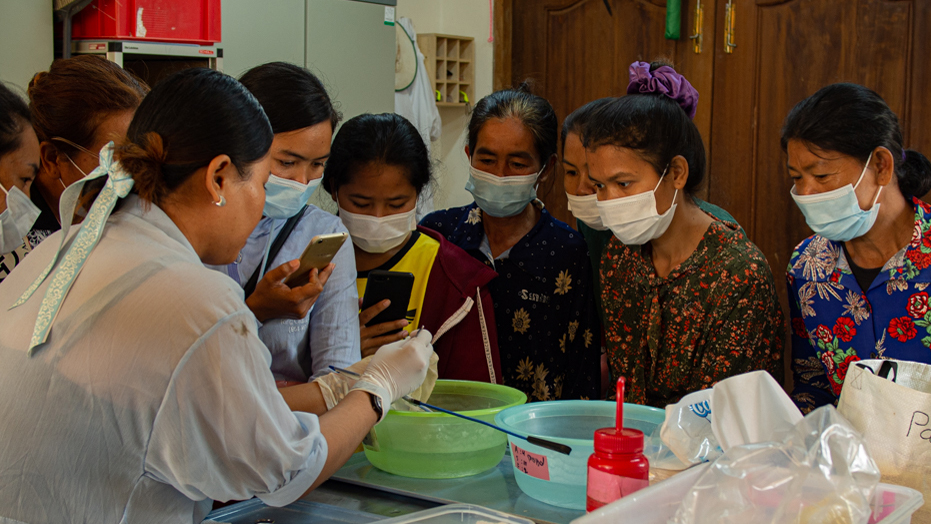

Swiss Partners
ZHAW Life Sciences und Facility Management, Wädenswil
www.zhaw.ch/de/lsfm/
Fridolin Tschudi
Local Partner
Project Type:
Technology:
Country:
Project Status:
Project Start:
End of Project:
Contract:
Documentation
Swiss Contribution
ZHAW’s Institute of Natural Resource Sciences (INRS/IUNR) is committed to the sustainable use of natural resources and that natural habitats for humans, animals and plants remain intact. The aim of good fish farming is to maintain high-quality water, strive for low emissions, energy optimisation and simplification of operational processes in order to enable sustainable fish production. This project is implemented in cooperation with the Asian Institute of Technology AIT, Smiling Gecko Cambodia and WorldFish organization.
Description
Aquacultures initiated by the Cambodian government in rural regions are intended to ensure a better food supply for the population in the medium term. The commonly used, simple paddle wheels or diesel-driven systems are inadequate for a good and cost-effective oxygen supply in order to successfully manage fish ponds. On one hand, the ZHAW developed Sun-Oxygen-System SOS, with pumps supported by photovoltaics, is used to guarantee efficient oxygen supply for fish ponds. On the other hand, the nutrient-rich water is used for irrigation systems in fields; representing an economic, ecological and social approach.
Results
The satisfying results of the Sun Oxygen System (SOS) obtained in Switzerland could be replicated in Cambodia. 13 new fish ponds were built, reducing fish mortality and increasing fish production and income with the SOS system. The online training courses and the construction manual for the SOS system are available online.
Impacts
During the project, 30 people and many online users were trained. In total, 480 people benefited from the project. About 10 kWp of PV power has been installed thanks to SOS. It produces about 13,000 kWh per year and saves 10 tonnes of CO2. The costs are very competitive compared to diesel-powered aeration systems for fish ponds. The social impacts are manifold in terms of training, jobs and income, as well as local food supply.